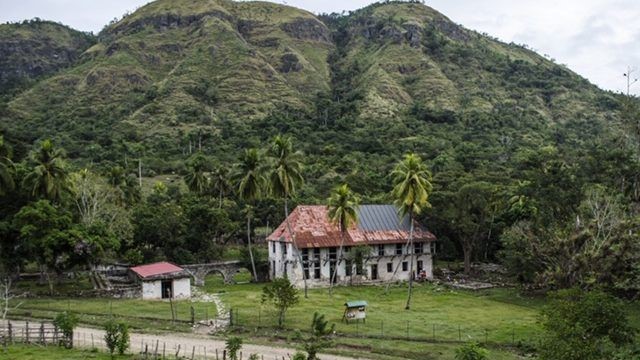The French company Malongó has signed an agreement with the state-owned Empresa Agroforestal Gran Piedra (Santiago de Cuba) to invest in coffee production in a country whose people can barely drink the beverage due to the scant volume of beans now harvested on the island.
The agreement, reached on the National Day of France at the 39th International Fair of Havana (FIHAV 2023), was signed by Malongo General Director Jean Pierre Blanc.
In statements to the state-run Agencia Cubana de Noticias (ACN) (Cuban News Agency), the businessman said that the agreement will benefit the Ramón de Las Yaguas ward in the territory of Santiago, where the La Fraternidad coffee plantation was once located.
This site, located in the Santiago municipality of Songo la Maya, is related to the French presence and the cultivation of coffee in the island's eastern mountains. It is also part of the "Archaeological Landscape of the First Coffee Plantations of Southeast Cuba," consisting of 171 plantations, and declared a UNESCO World Heritage Site in 2000.
In 2018, the regime’s Cubadebate website mentioned the existence, since 2014, of the "The Coffee Paths" (Los caminos del café) project, funded by the European Union, the Malongó Foundation, and the Office of the Conservator of the City of Santiago de Cuba, to refurbish the site, make it part of a sort of Coffee Museum, and promote "responsible tourism" there.
"Beyond an idea, the initiative will be real, with the reproduction of coffee plantations from centuries ago, in the same way that the French did, with the same varieties of coffee and fruit trees they used, the drying of the beans in the same place where it was done before, and the construction of an old water-driven mill, also very similar to another that existed here," the newspaper stated in its report.
The deal now signed in Havana, ACN says, seeks to "increase the productivity of those beans, and, at the same time, raise the standard of living of the area's inhabitants."
"It is a complete business project that requires foreign investment, training and technology transfer to raise the quality of the coffee that will be produced and then marketed abroad," added Jean Pierre Blanc.
Malongó is, according to its institutional site, a "specialist in organic and fair coffees," as it sells "high-end coffees, from the noblest terroirs, grown according to ancestral agricultural methods on small family plantations."
This deal, whose monetary amount was not mentioned in the report, took place while, as DIARIO DE CUBA verified, the province of Sancti Spíritus' coffee roaster was conducting "explosion tests" to verify that its product will not make residents' home coffee makers blow up.
In mid-October the official Cuban media source reported that, after being shut down for four months, the Reynerio Almaguer Paz coffee roaster company in Holguín had resumed its production to guarantee the delivery of this product as a basic grocery item in the provinces of Granma, Las Tunas, and Holguin.
Announcing the resumption of production, Rider Juan Sánchez Hijuelos, director of the industry, stressed that they won't be able to make up for the accumulated dearth of coffee for Cubans. This decision was put down to the lack of raw materials suffered, although it would be enough to meet the delivery cycles of the month of November "based on established supply alternatives."
The industry is designed to assimilate about 3,000 tons per year based on coffee beans and imported peas (mixed with coffee in a proportion of 50%), but is affected by technological obsolescence and a shortage of raw materials, the official said.
Regarding the major shortage of coffee on the island, DIARIO DE CUBA recently reported that even in Guantanamo, a bean-producing province, it is very difficult to find the product, as the Government continues to export it.
Despite being a tradition, the consumption of this drink has become a luxury for Cubans. Even the tiny amount they receive in distributed rations is in danger, as the disappearance of the rationing book seems, increasingly, imminent.
As economist Rafael Cruz recalled, in 1967 Fidel Castro boasted: "there will come a time when we'll be able to tell the people: 'go get all the coffee you want at the market, for free.'"
Ever since the Castros turned the island into their estate, however, coffee production has plummeted from more than 60,000 to less than 6,000 tons per year, preventing Cuba from taking advantage of the current record prices of between 3,000 and 4,000 dollars per ton of coffee paid on the international market.
Likewise, the price of beans in Cuba does not depend on the free market, but rather on the Government, which decreed that processing companies were to buy Arabica coffee from farmers at a price of 149,000 pesos per ton, and 83,000 pesos per ton for Robusta. But when they sell it to state exporters after the industrial process, they can only charge 72,000 and 46,000 pesos per ton, respectively, which dooms them to suffer millions in losses.
